Riley Bailey
Ukrainian Main Military Intelligence (GUR) Head Kyrylo Budanov reported that the Russian military deployed elements of a newly created “reserve army” (the 25th CAA) to enable units currently on the frontline in Luhansk Oblast to laterally redeploy to defend against the Ukrainian counteroffensive in southern Ukraine. Budanov stated on August 31 that the Russian military deployed elements of the newly formed 25th Combined Arms Army (reportedly formed under the Eastern Military District) to replace elements of the 41st Combined Arms Army (Central Military District) in the Kupyansk direction, and that these elements of the 41st Combined Arms Army (CAA) began a “slow” redeployment to an unspecified area in southern Ukraine.[1] Elements of the 41st CAA’s 35th Separate Guards Motorized Rifle Brigade and 90th Tank Division participated in the failed Russian winter 2023 offensive operation in Luhansk Oblast and have continued limited offensive activity along the Svatove-Kreminna line through now.[2] These units are likely degraded and have been operating without brigade and regiment level rotations like many frontline Russian units throughout the theater. ISW previously assessed that a lack of operational reserves would force the Russian command to conduct further lateral redeployments and make tough decisions about what sectors of the front to prioritize.[3] The Russian military command appears to have deployed elements of the newly formed and likely low quality or understrength 25th CAA to Luhansk Oblast to free up the relatively more effective 41st CAA elements for southern Ukraine. Budanov added that elements of the 25th CAA are already participating in hostilities in Luhansk Oblast.[4]
The 25th Combined Arms Army is unlikely to be combat effective at scale given its rushed deployment, ahead of a previously reported intended deployment date of December 2023. Russian Defense Minister Sergei Shoigu announced that the Russian Ministry of Defense (MoD) formed a “reserve army” at the end of June, likely referencing the 25th CAA, which began recruiting personnel from the Russian Far East in mid-May.[5] The 25th CAA will reportedly consist of 30,000 contract personnel in two motorized rifle divisions as well as an unspecified number of tank and artillery battalions, although it is unclear what elements have actually formed to date.[6] Budanov stated that Russian forces formed the 25th CAA as a ”strategic“ reserve and did not intend for the formation to be combat ready before October or November 2023.[7] A Russian administrator in Dalnegorsk, Primorsky Krai posted a recruitment ad for the 25th CAA on June 5 that claimed that the 25th CAA would train personnel from September 1 to December 1 and then deploy to either Zaporizhia or Kherson Oblast - ISW has not independently observed reporting of the October or November date Budanov cited but has no reason to question this statement.[8] Ukrainian Deputy Chief of the Main Operational Department Oleksii Hromov stated on July 5 that the 25th CAA would not be combat ready until at least 2024.[9] Budanov noted that the 25th CAA elements that have arrived in Luhansk Oblast are understaffed and lack training, unsurprising due to their accelerated deployment.[10] ISW cannot yet independently verify that elements of the 25th CAA are operating in Luhansk Oblast, and the scale of the 25th CAA’s commitment is unclear from Budanov’s comments. The current size and capabilities of the elements of the 25th CAA deployed to Ukraine five months prematurely are unclear. The formation is likely either severely understaffed and not near the paper strength of two divisions, or is poorly trained much like initial Russian mobilized units in fall 2022, or both.
The Russian command likely views the deployment of a combat ineffective formation to Luhansk Oblast as a tolerable risk given the relatively lower tempo of operations along much of the Luhansk Oblast frontline. The recent lateral redeployment of elements of the 76th Guards Air Assault (VDV) Division from the Kreminna area in Luhansk Oblast to the Robotyne area in western Zaporizhia Oblast in late August further suggests that the Russian military command likely views this sector of the front as relatively safe.[11] Ukrainian forces are conducting limited ground attacks in Luhansk Oblast compared to other areas of the front.
Additional Russian lateral redeployments and the immediate commitment of intended operational reserves suggest that short term reinforcement needs are impeding intended long-term reconstitution efforts. The redeployment of elements of the 41st CAA to southern Ukraine is the third major Russian lateral redeployment since the start of the Ukrainian counteroffensive in June and the second in recent weeks.[12] Russian formations at the division level (and in some areas lower) defending in southern Ukraine have done so without rotation since the start of the Ukrainian counteroffensive, and these forces have committed substantial material, manpower, and effort to hold back Ukrainian advances.[13] The second lateral deployment in the span of a few weeks suggests an increasing Russian concern about the stability of Russian defenses in light of Ukrainian advances around Robotyne. The creation of the 25th CAA is likely a part of Shoigu’s long-term objective previously announced in January 2023 to form several new major ground forces formations, and the deployment of elements of the 25th CAA to avoid creating gaps in the Russian defense suggests that the immediate threat of a Ukrainian breakthrough is serious enough to supersede that effort.[14]
Russian “Vostok” Battalion commander Alexander Khodakovsky continues to highlight the impact of the lack of Russian counter-battery capabilities on Russian morale in the Donetsk-Zaporizhia Oblast border area. Khodakovsky claimed on September 1 that Russian forces continue to suffer from a lack of counter-battery capabilities in the Novomayorske-Novodonetske-Kermenchyk area (12km to 18km southeast of Velyka Novosilka), where Khodakovsky and the “Vostok” Battalion are reportedly defending.[15] Khodakovsky insinuated that Russian forces are experiencing extreme physical and psychological stress in this area due to constant Ukrainian artillery fire and the Russian inability to return fire.[16] Khodakovsky expressed concerns about whether distressed and exhausted Russian forces will be able to defend against a future Ukrainian offensive in this sector of the front.[17]
Khodakovsky has previously highlighted similar concerns about the Russian defense in this area, although his recent comments are more negative and defeatist in tone.[18] Khodakovsky’s complaints about the lack of counter-battery capabilities in the Donetsk-Zaporizhia Oblast border area and concerns about its impacts on Russian morale are not necessarily indicative of a wider phenomenon in the Russian defense. However, Khodakovsky’s comments likely accurately reflect the situation in his limited but important sector of the frontline as well as the situation for often neglected proxy military formations such as Khodakovsky’s Donetsk People’s Republic (DNR) “Vostok” Battalion. Khodakovsky noted on August 31 that Russian forces cannot lose sight of the daily fight against Ukrainian forces while fantasizing about "burying the enemy in the future.”[19] Khodakovsky may believe that senior Russian commanders have done exactly this by letting the situation deteriorate to the point that Russian forces may be unable to defend against future Ukrainian offensives in the Donetsk-Zaporizhia Oblast border area.
Ukrainian forces continued offensive operations near Bakhmut and in western Zaporizhia Oblast and made some advances on September 1. The Ukrainian General Staff reported that Ukrainian forces continued offensive operations south of Bakhmut, and geolocated footage shows that Ukrainian forces marginally advanced northwest of Klishchiivka (7km southwest of Bakhmut).[20] The Ukrainian General Staff reported that Ukrainian forces achieved unspecified success in the Novodanylivka-Novopokropivka direction (5km to 13km south of Orikhiv) in western Zaporizhia Oblast.[21] Russian sources claimed that Russian forces repelled Ukrainian attacks near Robotyne (10km south of Orikhiv) and Verbove (18km southeast of Orikhiv), however.[22] US National Security Council Spokesperson John Kirby stated on July 1 that the US has observed notable Ukrainian progress in the “Zaporizhia area” (likely meaning the western Zaporizhia Oblast direction) in the past 72 hours and that Ukrainian forces have achieved some success against the “second line of Russian defenses” in southern Ukraine.[23] Kirby also stated that anonymous US officials’ criticisms of the progress of the Ukrainian counteroffensive are unhelpful.[24]
Politico confirmed previously-reported numbers of refurbished US Abrams tanks set to arrive in Ukraine by mid-September. Politico confirmed that Ukraine will receive the first 10 of the 31 promised refurbished US Abrams tanks by mid-September following refurbishment in Germany, citing a US Department of Defense official and another source.[25] The US Army Europe and Africa Spokesperson Colonel Martin O’Donnell stated that the US remains committed to delivering the 31 Abrams during an unspecified timeframe in the fall.[26] O’Donnell stated that 200 Ukrainian servicemen recently completed one of the final phases of Abrams training. Ukraine is unlikely to deploy the initial Abrams tanks (two platoons) until the entire brigade set is ready for operations.
Russian Deputy Defense Minister Colonel General Yunus-Bek Yevkurov is reportedly visiting multiple African countries as part of the Russian Ministry of Defense’s (MoD’s) continued effort to assume control over the Wagner Group’s operations in Africa. A Kremlin-affiliated milblogger claimed that Yevkurov is conducting a tour of various African countries including Burkina Faso and recently visited Libya and Syria in an attempt to replace “private military companies” (PMCs) with Russian MoD-controlled formations.[27] The milblogger also claimed that the Russian MoD is forming a “volunteer corps” to function as an “expeditionary corps” that will include over 20,000 personnel.[28] The “expeditionary corps” may be a reference to the “Rossiyskiy Ekpeditsionniy Korpus” (Russian Expeditionary Corps) PMC that Russian officials are allegedly creating to conduct operations abroad.[29] Bloomberg reported on August 31 that unnamed sources close to the Russian MoD and an unspecified PMC claimed that a Russian MoD-affiliated PMC is positioned to take control of Wagner’s operations in the Central African Republic.[30] ISW has continually observed claims since the Wagner rebellion on June 24 that the Russian MoD is attempting to consolidate control over Wagner operations in Africa.[31]
A Russian public opinion poll indicates that there is likely little to no societal discontent around the Wagner Group or its financier Yevgeny Prigozhin’s death, and the true cause of the plane crash will have little impact on both Russian perceptions and the future of the Wagner Group. Independent Russian polling organization Levada Center found that roughly equivalent percentages of Russians believe that either Prigozhin’s death was accidental; Russian authorities intentionally orchestrated Prigozhin’s death; Prigozhin is still alive; or the cause of Prigozhin’s death is difficult to determine.[32] Levada Center polls conducted on June 23 and August 23 found that Russians are almost evenly split between disapproving and approving of Prigozhin’s activities.[33] Public opinion on the death of Prigozhin (very likely a Kremlin-directed assassination) would only impact Kremlin or Ministry of Defense decision making if public opposition reached a far higher threshold, and the Kremlin likely in fact benefits from continued disagreement in Russian society over the circumstances of Prigozhin’s death.
A fringe Russian milblogger arrested on August 31 for allegedly discrediting the Russian military reportedly pled guilty on September 1.[34] Russian state media outlet TASS reported that Andrey Kurshin, administrator of the “Moscow Calling” Telegram channel, pled guilty to charges for knowingly disseminating false information about the Russian military and faces up to 10 years in prison.[35] Russian media outlet Baza claimed that Russian officials charged Kurshin for posts made on September 14 and November 23, 2022 covering Russian shelling of Zaporizhia Oblast and a strike near a dam on the Inhulets River near Kherson City, respectively.[36] Kurshin, via the “Moscow Calling” channel, has actively criticized the Russian military, Ministry of Defense (MoD), and Kremlin throughout the war for poor Russian conduct, and these specific and older posts are unlikely to be the impetus for Kurshin’s arrest. Russian authorities reportedly arrested prominent ultranationalist Igor Girkin based on Telegram posts two months prior to his arrest but reportedly began investigating Girkin on the same day he levied especially harsh critiques against Russian President Vladimir Putin, as ISW has previously reported.[37]
Key Takeaways:
- Ukrainian Main Military Intelligence (GUR) Head Kyrylo Budanov reported that the Russian military deployed elements of a newly created “reserve army” (the 25th CAA) to enable units currently on the frontline in Luhansk Oblast to laterally redeploy to defend against the Ukrainian counteroffensive in southern Ukraine.
- The 25th Combined Arms Army is unlikely to be combat effective at scale given its rushed deployment, ahead of a previously reported intended deployment date of December 2023.
- Additional Russian lateral redeployments and the immediate commitment of intended operational reserves suggest that short term reinforcement needs are impeding intended long-term reconstitution efforts.
- Russian “Vostok” Battalion commander Alexander Khodakovsky continues to highlight the impact of the lack of Russian counter-battery capabilities on Russian morale in the Donetsk-Zaporizhia Oblast border area.
- Ukrainian forces continued offensive operations near Bakhmut and in western Zaporizhia Oblast and made some advances on September 1.
- Russian forces conducted offensive operations along the Kupyansk-Svatove-Kreminna line, near Bakhmut, along the Avdiivka-Donetsk City line, in the Donetsk-Zaporizhia Oblast border area, and in western Zaporizhia Oblast but did not make any confirmed gains.
- Russian occupation officials announced on September 1 that voting began for the Russian regional elections held in occupied Ukraine and will continue in various forms through September 10.
- Russian officials continue efforts to forcibly indoctrinate Ukrainian youth into Russian culture and identity by integrating schools in occupied Ukraine into the Russian educational system.
We do not report in detail on Russian war crimes because these activities are well-covered in Western media and do not directly affect the military operations we are assessing and forecasting. We will continue to evaluate and report on the effects of these criminal activities on the Ukrainian military and the Ukrainian population and specifically on combat in Ukrainian urban areas. We utterly condemn these Russian violations of the laws of armed conflict, Geneva Conventions, and humanity even though we do not describe them in these reports.
- Russian Main Effort – Eastern Ukraine (comprised of two subordinate main efforts)
- Russian Subordinate Main Effort #1 – Capture the remainder of Luhansk Oblast and push westward into eastern Kharkiv Oblast and encircle northern Donetsk Oblast
- Russian Subordinate Main Effort #2 – Capture the entirety of Donetsk Oblast
- Russian Supporting Effort – Southern Axis
- Russian Mobilization and Force Generation Efforts
- Activities in Russian-occupied areas
Russian Main Effort – Eastern Ukraine
Russian Subordinate Main Effort #1 – Luhansk Oblast (Russian objective: Capture the remainder of Luhansk Oblast and push westward into eastern Kharkiv Oblast and northern Donetsk Oblast)
Russian forces continued limited offensive operations along the Kupyansk-Svatove-Kreminna line on September 1 but did not make any confirmed advances. The Ukrainian General Staff reported that Russian forces conducted unsuccessful offensive actions near Novoselivske (15km northwest of Svatove) and Novoyehorivka (16km southwest of Svatove).[38] Russian Western Grouping of Forces Press Officer Yaroslav Yakimkin claimed on September 1 that Russian forces continued offensive operations in the Kupyansk direction and captured an unspecified Ukrainian stronghold.[39] The Russian Ministry of Defense (MoD) claimed that elements of the Russian Western Grouping of Forces captured several unspecified Ukrainian strongholds and key heights in the Kupyansk direction between August 25 and September 1.[40] Russian sources claimed on September 1 that Russian forces continued to make unspecified gains near Synkivka (9km northeast of Kupyansk), Petropavlivka (7km east of Kupyansk), and Vilshana (14km northeast of Kupyansk), although ISW has not observed visual confirmation of these claims.[41] A prominent Russian milblogger claimed that there are only positional battles ongoing in the Kupyansk direction.[42] Another Russian milblogger claimed that Russian forces conducted an assault near Bilohorivka (12km south of Kreminna) but did not specify an outcome.[43]
Russian sources claimed that Ukrainian forces conducted limited unsuccessful ground attacks along the Kupyansk-Svatove-Kreminna line on September 1.[44] Yakimkin claimed that elements of the Russian Western Grouping of Forces repelled four Ukrainian counterattacks in the Kupyansk direction.[45] Russian Central Grouping of Forces Spokesperson Alexander Savchuk claimed on September 1 that elements of the Central Grouping of Forces repelled four Ukrainian assaults near Torske (15km west of Kreminna) and the Serebryanske forest area south of Kreminna.[46] Russian milbloggers claimed that Russian forces repelled three Ukrainian assaults near Torske and another three assaults near the Serebryanske forest area.[47]
Russian Subordinate Main Effort #2 – Donetsk Oblast (Russian objective: Capture the entirety of Donetsk Oblast, the claimed territory of Russia’s proxies in Donbas)
Ukrainian forces continued offensive operations near Bakhmut on September 1 and made marginal advances south of Bakhmut. Geolocated footage published on September 1 indicates that Ukrainian forces made marginal advances northwest of Klishchiivka (7km southwest of Bakhmut).[48] The Ukrainian General Staff reported that Ukrainian forces continued offensive operations south of Bakhmut.[49] The Russian Ministry of Defense (MoD) claimed that Ukrainian forces repeatedly unsuccessfully attacked near Klishchiivka and Malynivka (24km northwest of Bakhmut) over the last week.[50] A prominent Russian milblogger claimed that Ukrainian forces continue efforts to capture Klishchiivka.[51] Another Russian milblogger posted footage purportedly showing elements of the Russian 200th Motorized Rifle Brigade (14th Army Corps, Northern Fleet) repelling Ukrainian attacks in the Bakhmut direction.[52]
Russian forces continued counterattacks near Bakhmut on September 1 but did not make any confirmed advances. The Ukrainian General Staff reported that Russian forces conducted unsuccessful offensive operations near Kurdyumivka (12km southwest of Bakhmut).[53] Ukrainian Eastern Grouping of Forces Spokesperson Ilya Yevlash stated on August 31 that Russian forces are counterattacking in the Bakhmut direction in order to stop Ukrainian advances.[54] Several Russian milbloggers claimed on September 1 that Russian forces counterattacked near Kurdyumivka, Ozaryanivka (14km southwest of Bakhmut), and Klishchiivka and recaptured unspecified positions in the area.[55] Other milbloggers claimed that Russian forces recaptured some heights west of Klishchiivka.[56] The Russian volunteer ”Hispaniola” Battalion, notably comprised of Russian sports fans, claimed to be operating near Bakhmut.[57]
Russian forces continued ground attacks along the Avdiivka-Donetsk City line on September 1 but did not make any confirmed advances. The Ukrainian General Staff reported that Russian forces conducted unsuccessful offensive operations near Sieverne (6km west of Avdiivka), Krasnohorivka (directly west of Donetsk City), Marinka (directly west of Donetsk City), and Novomykhailivka (10km southwest of Donetsk City).[58] A Russian milblogger claimed on July 31 that Russian and Ukrainian forces skirmished near Nevelske (directly west of Donetsk City) and claimed that Russian forces have entrenched themselves near the Trudovska mine area near Marinka.[59]
Russian Supporting Effort – Southern Axis (Russian objective: Maintain frontline positions and secure rear areas against Ukrainian strikes)
Ukrainian forces reportedly continued offensive operations in the Donetsk-Zaporizhia Oblast border area but did not advance on September 1. Russian Eastern Grouping of Forces Spokesperson Oleg Chekov claimed that Russian forces repelled a Ukrainian attack in the direction of Pryyutne (15km southwest of Velyka Novosilka).[60] Other Russian sources claimed that small Ukrainian groups attacked in the direction of Staromlynivka (14km south of Velyka Novosilka) and that Ukrainian forces are conducting offensive operations near Staromayorske (9km south of Velyka Novosilka).[61] Russian “Vostok” Battalion Commander Alexander Khodakovsky expressed frustration with the inadequacy of Russian counterbattery fire near Urozhaine (9km south of Velyka Novosilka) and along the Novomayorske-Novodonetske-Kermenchyk line (12-18km southeast of Velyka Novosilka), claiming that Russian artillery in the area takes several days to strike Ukrainian positions whereas Ukrainian forces do not suffer such constraints.[62] Khodakovsky claimed that Russian forces defending in the area are under extreme physical and psychological stress and warned that this stress will impact Russian forces’ defensive ability in the area.[63]
Russian forces continued limited offensive operations in the Donetsk-Zaporizhia Oblast border area on September 1 and reportedly advanced. A Russian milblogger claimed that elements of the Russian 127th Motorized Rifle Division (5th Combined Arms Army, Eastern Military District) advanced 100-200 meters north of Pryyutne since August 30.[64] The Ukrainian General Staff reported that Russian forces conducted unsuccessful offensive actions in the Velyka Novosilka area, likely referring to the broader Donetsk-Zaporizhia Oblast border area.[65]
Ukrainian forces continued offensive operations in western Zaporizhia Oblast and reportedly advanced on September 1. The Ukrainian General Staff reported that Ukrainian forces achieved unspecified success in the Novodanylivka-Novopokropivka direction (5km to 13km south of Orikhiv).[66] Russian sources claimed that Ukrainian forces attacked near Verbove (18km southeast of Orikhiv) overnight on August 31 to September 1 and on September 1, but that Russian forces repelled the attacks.[67] One Russian milblogger characterized the Ukrainian forces that attacked near Verbove as small, 15-person groups without armored vehicle support.[68] Russian sources also claimed that Russian forces repelled a Ukrainian attack near Robotyne (10km south of Orikhiv), and some claimed that Russian forces still maintain positions in southern Robotyne.[69]
The Ukrainian General Staff reported that Russian forces conducted unsuccessful operations near Verbove in western Zaporizhia Oblast on September 1.[70]
Reported Russian Ministry of Defense (MoD) efforts to censor a subsect of Russian milbloggers who are complaining about the treatment of the Russian Separate 205th Motorized Rifle Brigade (49th Combined Arms Army, Southern Military District) in Kherson Oblast are likely impacting discourse about the brigade.[71] A Russian milblogger claimed on September 1 to have obtained information about the conflict within the Russian 205th Brigade from other milbloggers, Russian personnel in the area, and other unspecified sources who cannot publish such information themselves, indicating that some voices are deliberately self-censoring likely out of fear of retribution.[72] Some milbloggers claimed that they refuse to stay silent following reports that unspecified actors within the Russian military command called for the milbloggers’ detentions on August 31, but also largely kept their complaints vague.[73] A milblogger claimed that unspecified “very respected persons” and “political circles” are becoming interested in the situation, indicating that these milbloggers may fear specific reprisals from these individuals.[74]
Russian Mobilization and Force Generation Efforts (Russian objective: Expand combat power without conducting general mobilization)
Russian authorities continue to target migrants with Russian citizenship living in Russia for military service as part of ongoing crypto-mobilization efforts. Russian opposition outlet Mobilization News reported on September 1 that Russian authorities detained 21 migrants with Russian citizenship in Krasnoyarsk Krai who did not register with military registration and enlistment offices and issued 18 of them military summonses.[75] Mobilization News also reported that Russian security forces conducted raids on retail outlets in Nizhny Novgorod Oblast from August 21 to 31, issued military summonses to almost 50 migrants who recently received Russian citizenship, and deported 26 migrants.[76]
Activities in Russian-occupied areas (Russian objective: Consolidate administrative control of annexed areas; forcibly integrate Ukrainian citizens into Russian sociocultural, economic, military, and governance systems)
Russian officials continue efforts to forcibly indoctrinate Ukrainian youth into Russian culture and identity by integrating schools in occupied Ukraine into the Russian educational system. Russian President Vladimir Putin announced the opening of a new school for 1,100 students in occupied Mariupol, Donetsk Oblast on September 1, the first day of the Russian school year.[77] Putin claimed that schools in occupied Donetsk, Luhansk, Zaporizhia, and Kherson oblasts now operate under Russian educational standards. Russian opposition outlet Verstka reported on September 1 that Russian schools, likely including those in occupied Ukraine, will implement a “unified education program” to promote Russian patriotism and societal values.[78] Russian teachers told Verstka that they expect the new program to include propaganda to support and normalize the war in Ukraine.[79]
A Ukrainian official reported that Russian authorities are using children as human shields in occupied Kherson Oblast. Ukrainian Operational Command South Spokesperson Captain First Rank Nataliya Humenyuk stated on September 1 that unspecified Russian units are deployed next to a Russian-built boarding school in occupied Kherson Oblast where children are constantly present.[80] Such deployments would violate Article 51 of the Geneva Convention IV which states that, “the presence or movements of the civilian population or individual civilians shall not be used to render certain points or areas immune from military operations, in particular in attempts to shield military objectives from attacks or to shield, favor or impede military operations.”[81]
Russian occupation officials announced on September 1 that voting began for the Russian regional elections held in occupied Ukraine and will continue in various forms through September 10. The Kherson Oblast occupation administration announced that voting has started at 329 extraterritorial sites in 81 Russian regions and will last from September 1 to 4.[82] Zaporizhia Oblast occupation official Vladimir Rogov claimed that Russian occupation officials began door-to-door visits to collect early votes from settlements near the frontline.[83] Rogov also claimed that early voting will last for eight days and cover over 214,000 voters in 375 settlements in occupied Zaporizhia. Russian occupation officials from Nova Kakhovka, Chaplynka, and Bilozerka in occupied Kherson Oblast called on civilians to vote early between September 2 and 7 and noted that single-day voting will occur from September 8 to 10.[84] ISW continues to assess that Russian occupation authorities are likely conducting early voting and making house calls to collect votes in order to artificially increase voter turnout and achieve desired election results.[85]
Significant activity in Belarus (Russian efforts to increase its military presence in Belarus and further integrate Belarus into Russian-favorable frameworks and Wagner Group activity in Belarus)
The Russian-dominated Collective Security Treaty Organization (CSTO) began the “Combat Brotherhood 2023” operational-strategic command staff exercises in Belarus on September 1.[86] The annual joint military exercise will last through September 6 and include military contingents from Belarus, Russia, Kazakhstan, Kyrgyzstan, and Tajikistan.[87] The Russian Ministry of Defense (MoD) stated that 2,500 military personnel and 500 units of equipment in total from CSTO members will participate in the exercises.[88] “Combat Brotherhood 2023” has five centerpiece component exercises: “Interaction-2023,” consisting of combined arms combat planning exercises with the CSTO’s joint Collective Rapid Reaction Force; “Search-2023” special reconnaissance exercises; “Echelon-2023” logistics exercises; “Barrier-2023” chemical, biological, radiological and nuclear (CBRN) protection exercises; and “Rock-2023” special exercises involving unspecified Ministry of Emergency Situations elements with CSTO Rapid Reaction Force elements.[89] The Belarusian Ministry of Defense (MoD) stated that CSTO Collective Rapid Reaction Forces practiced mass fuel and lubricants distribution and logistics organization as part of “Echelon-2023" exercises on September 1.[90]
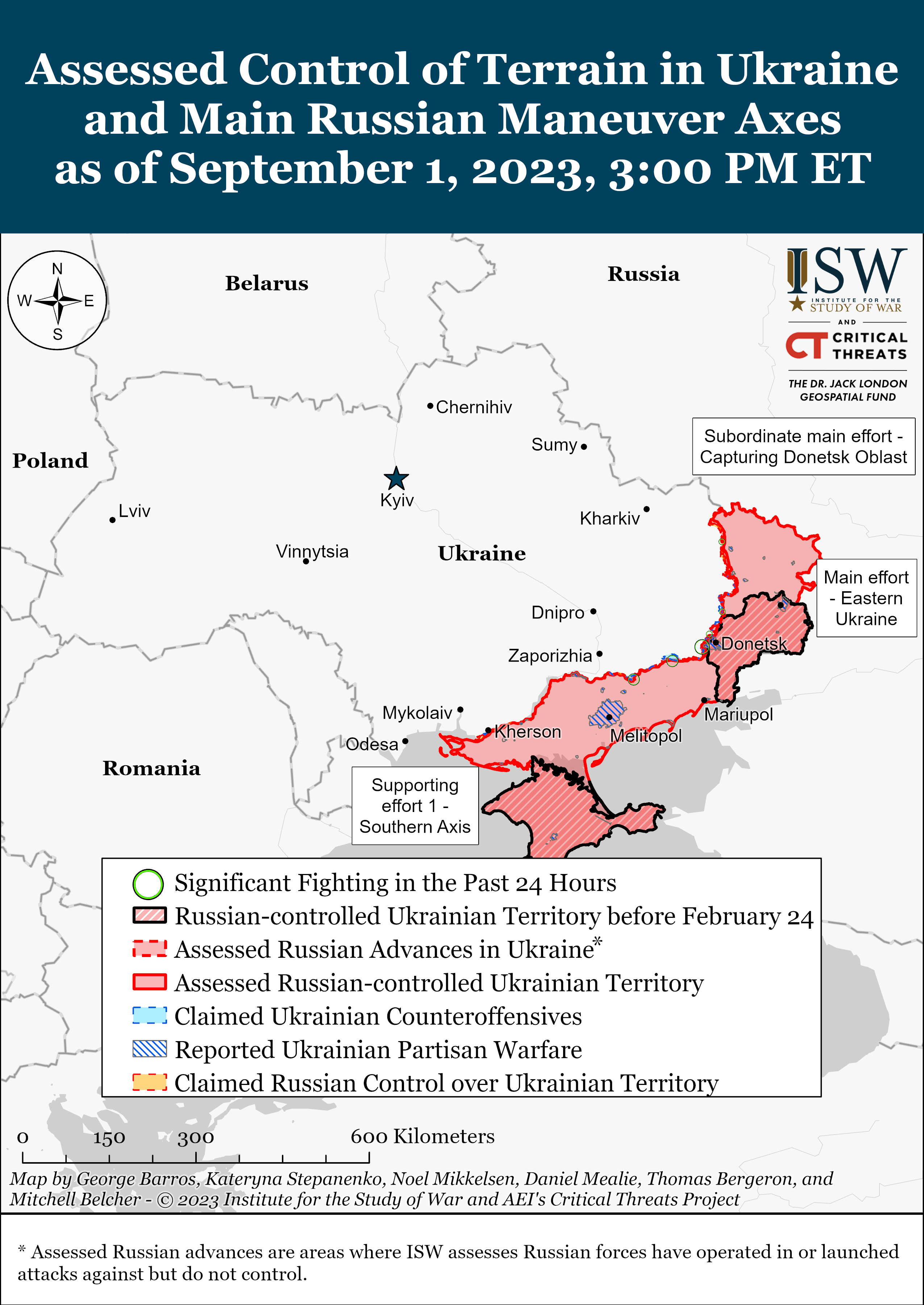
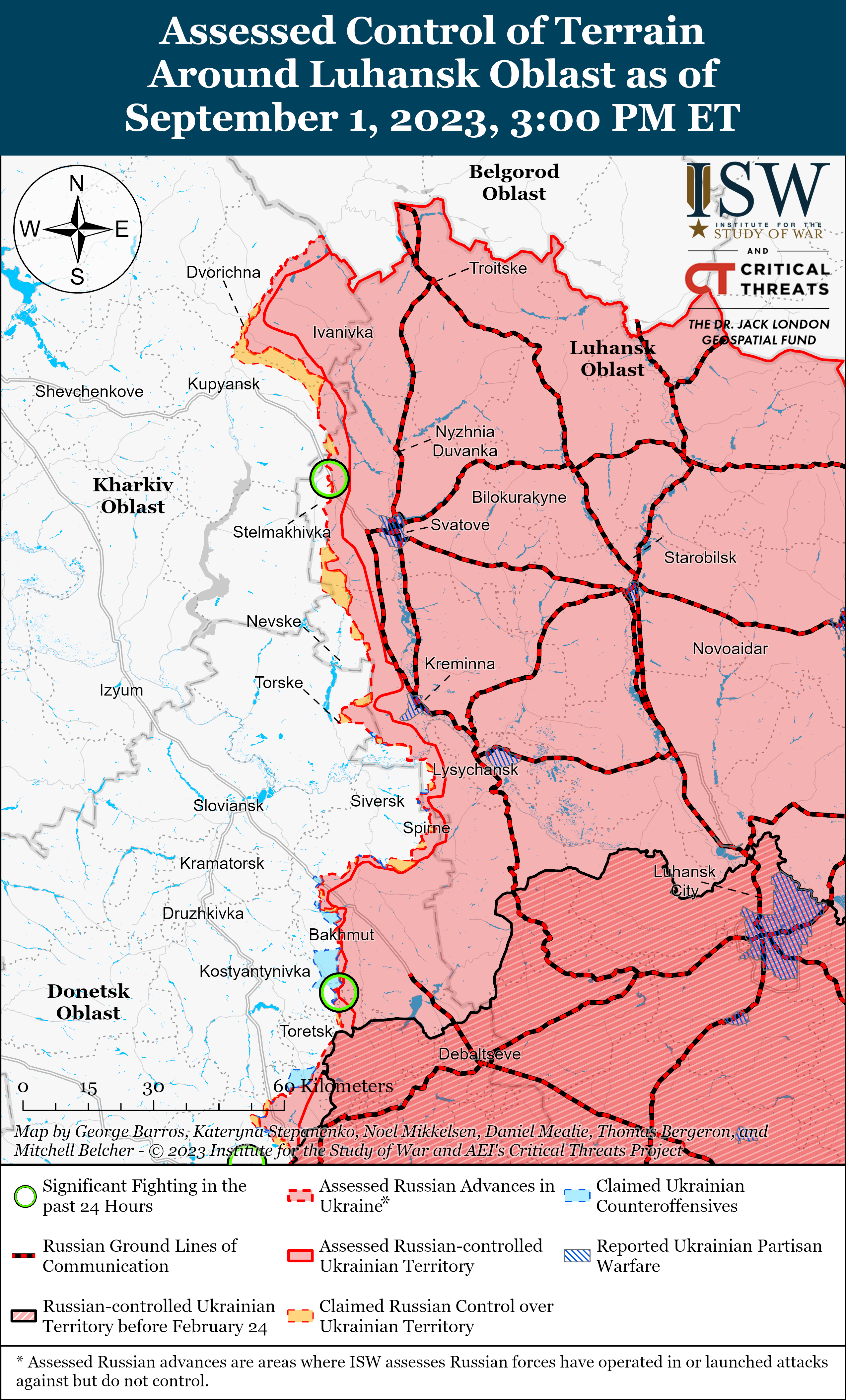
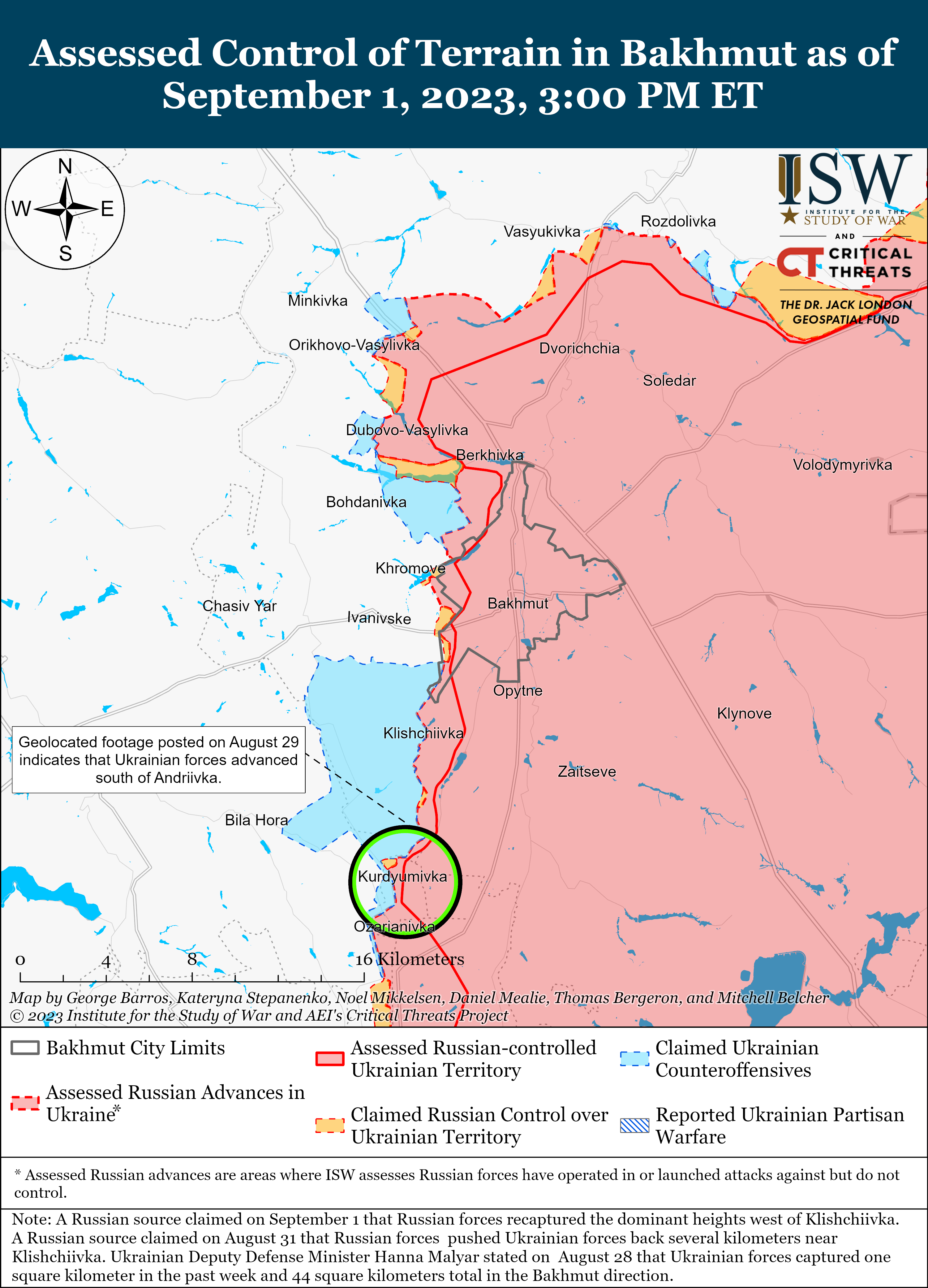
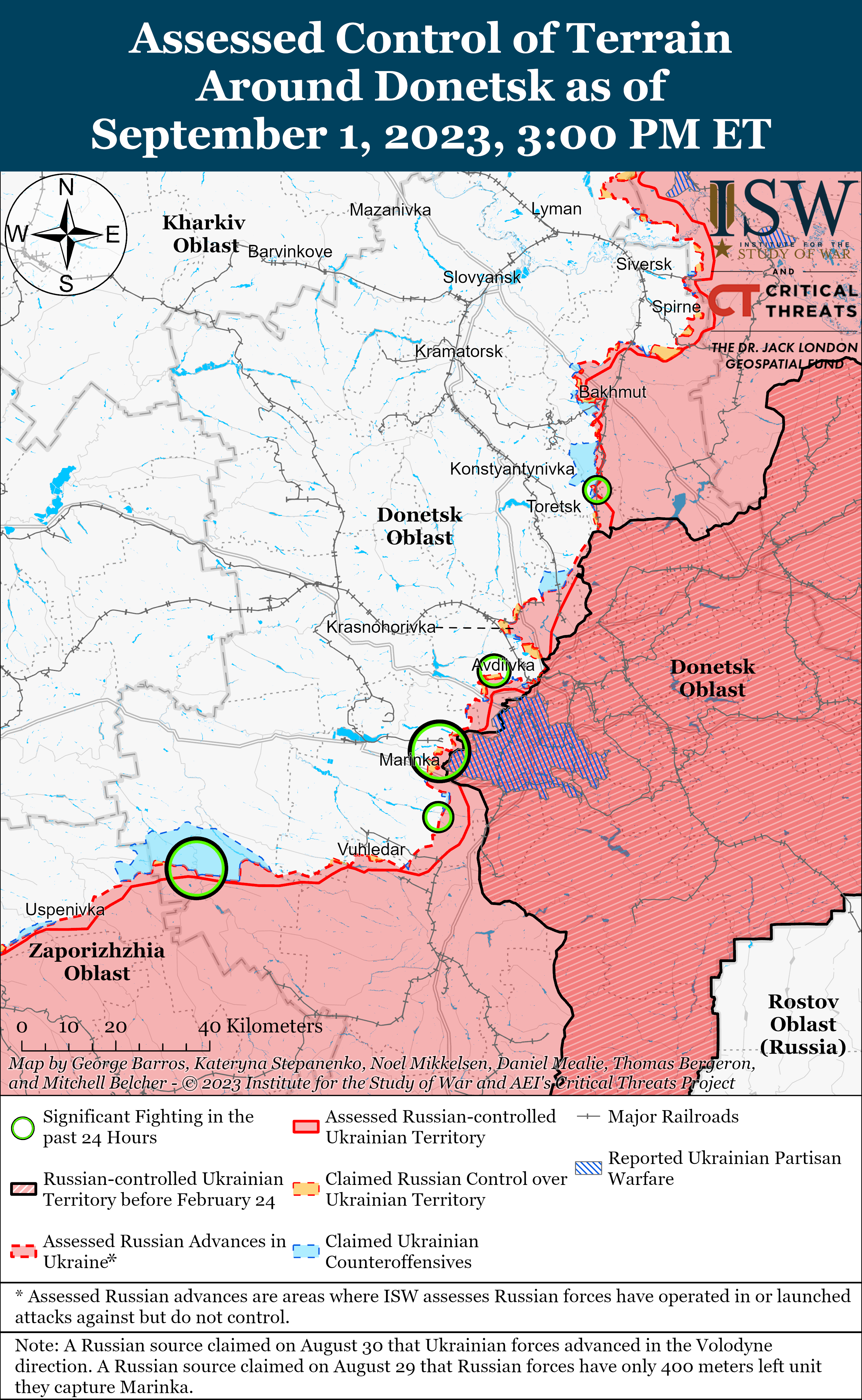
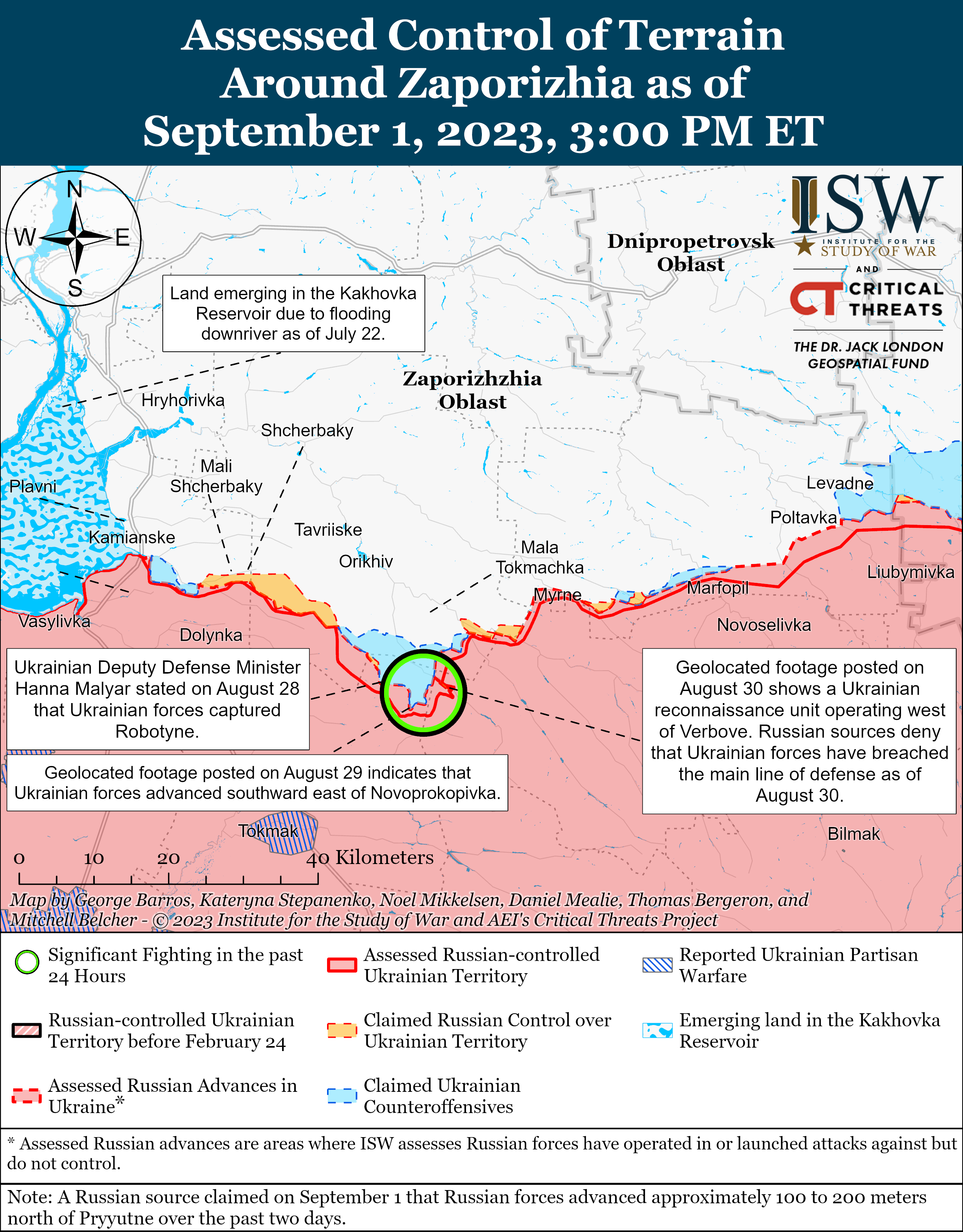
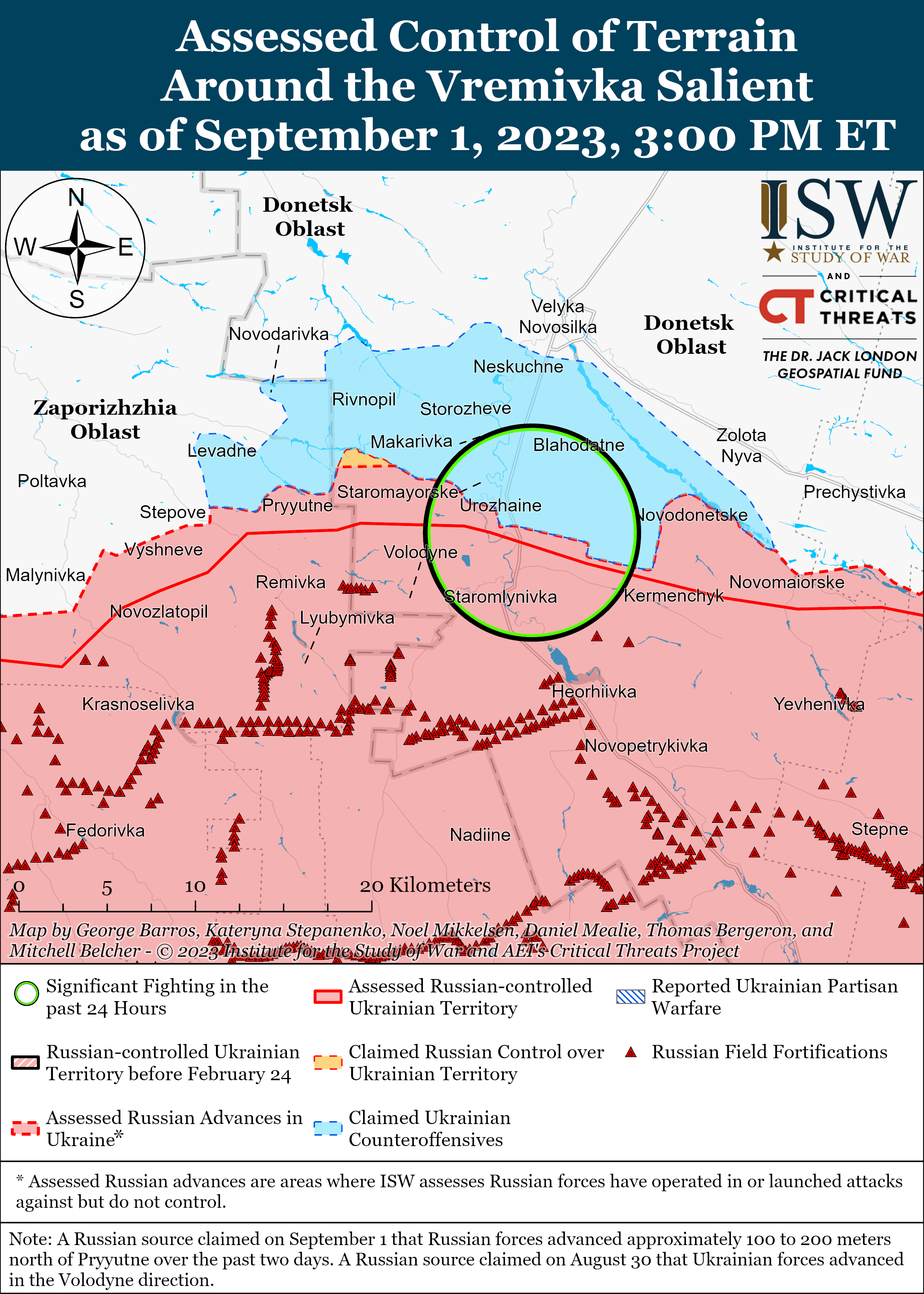
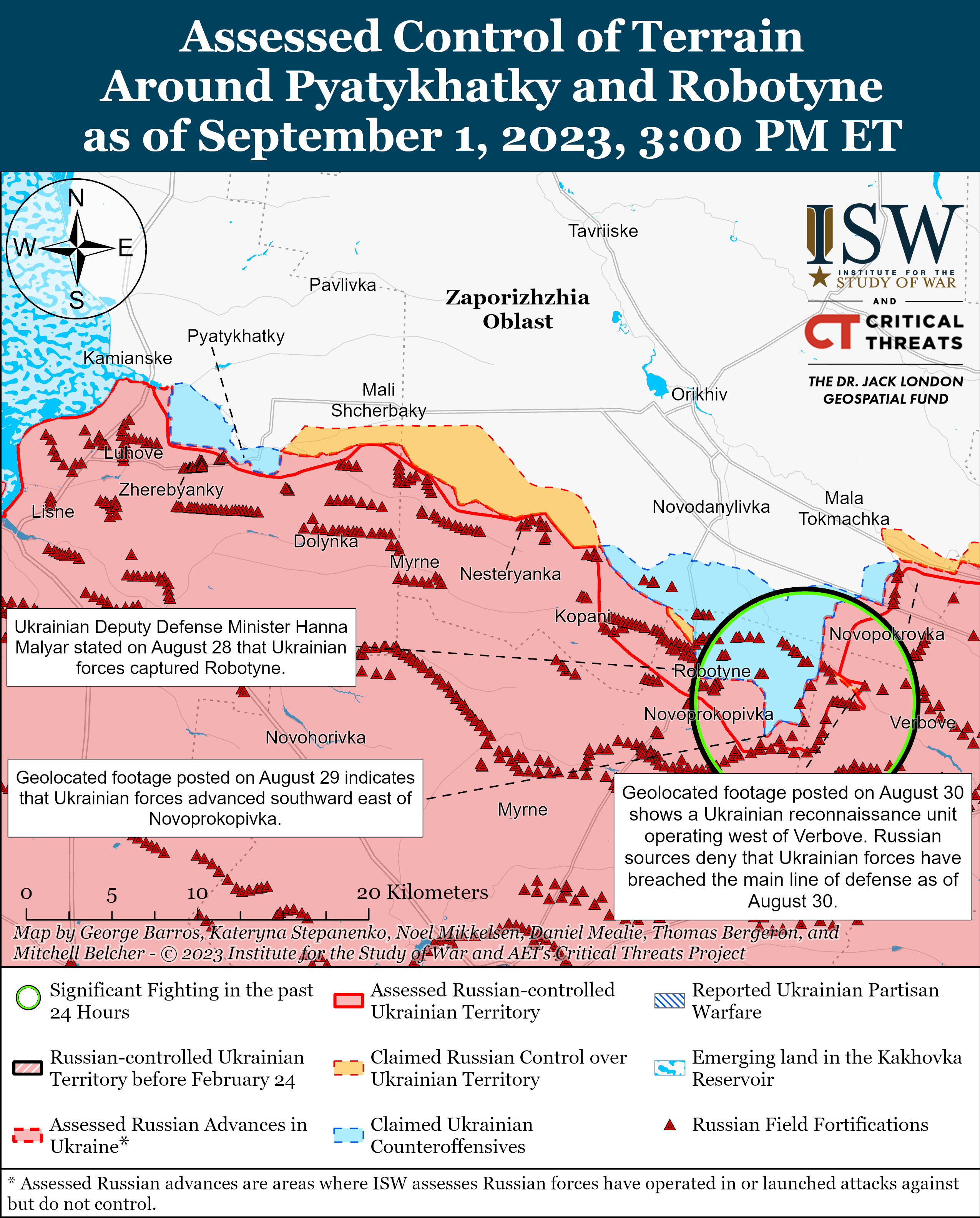
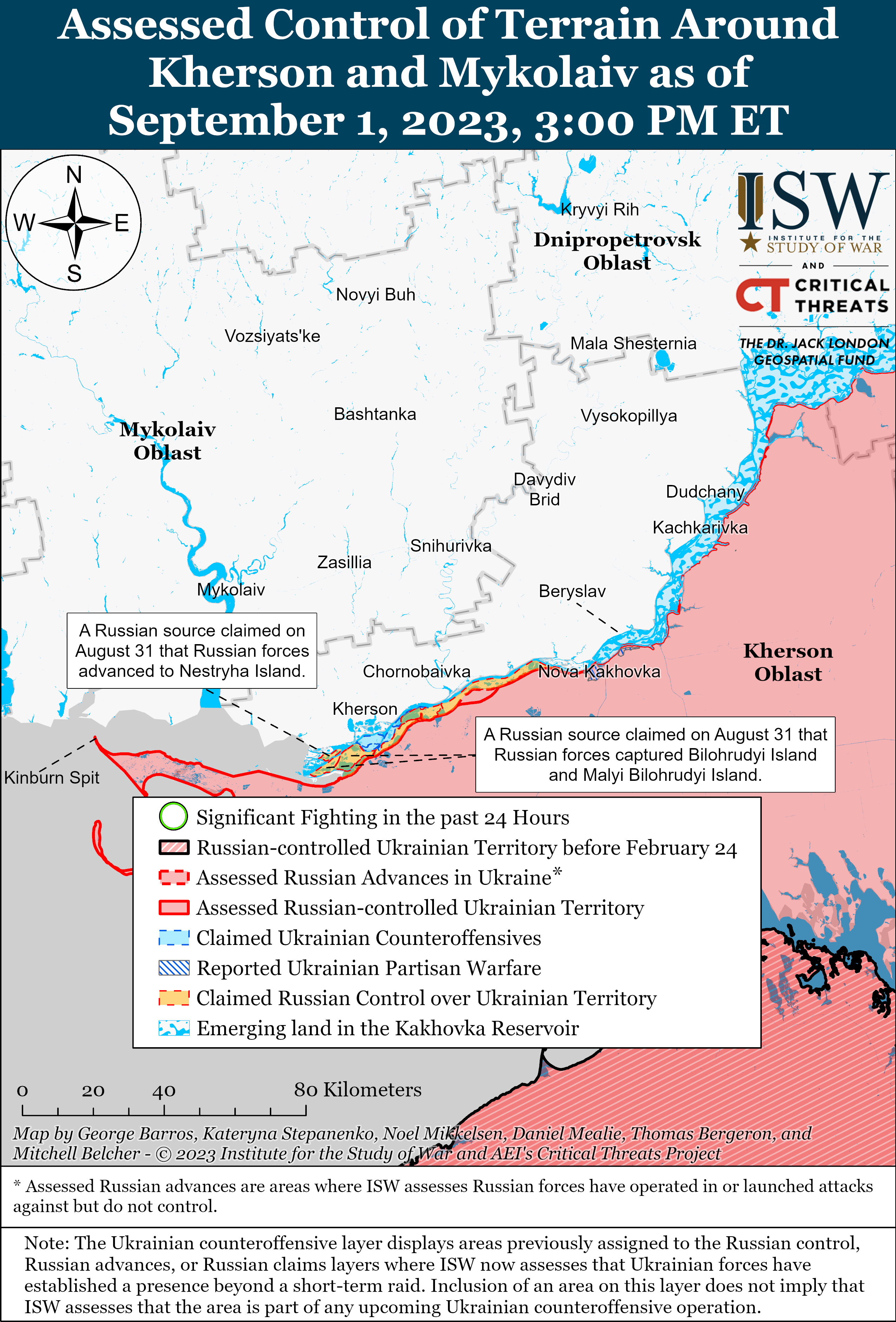
No comments:
Post a Comment